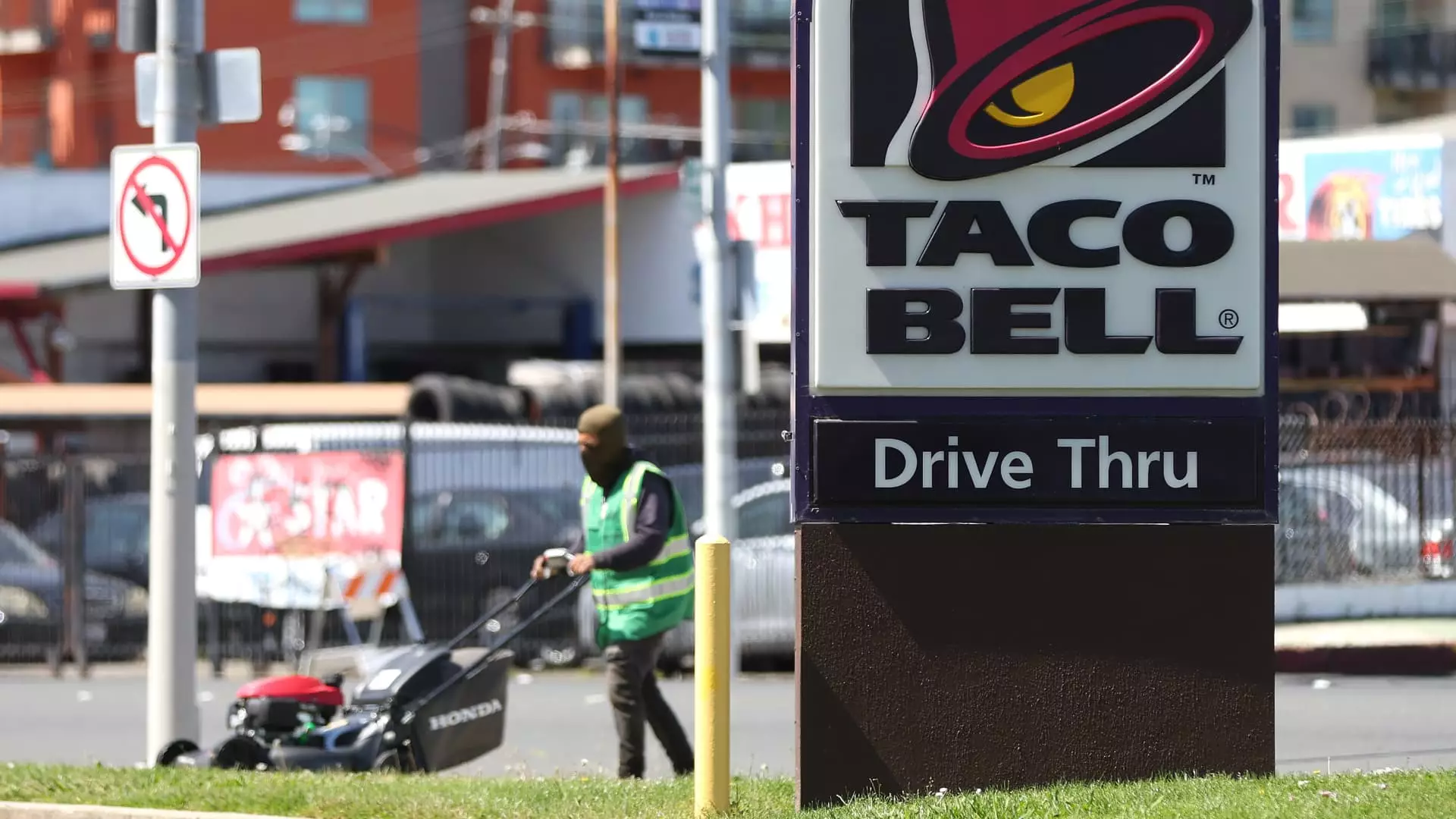Yum Brands recently reported a mixed quarter, with both Pizza Hut and KFC experiencing declining same-store sales. The CEO, David Gibbs, cited the impacts of the Middle East conflict and a more cost-conscious consumer as factors contributing to these challenges. Despite these headwinds, sales trends in the U.S. have shown improvement compared to the previous quarter, thanks to the popularity of value meals like Pizza Hut’s $7 Deal Lovers.
In terms of financial performance, Yum reported second-quarter net income of $367 million, or $1.28 per share, which was down from the previous year. Adjusted earnings per share came in at $1.35, slightly higher than the $1.33 expected by Wall Street analysts. However, revenue fell short of expectations at $1.76 billion, compared to the anticipated $1.8 billion.
Yum’s same-store sales declined by 1% in the quarter, with both Pizza Hut and KFC reporting decreases of 3%. KFC’s U.S. locations continued to struggle, with a 5% decline in same-store sales. While KFC saw an improvement in system sales in China, its overall international same-store sales fell by 3%. Pizza Hut faced similar challenges, with a 1% decrease in same-store sales in the U.S. and a 4% decline internationally.
Success of Taco Bell
Despite the challenges faced by Pizza Hut and KFC, Taco Bell emerged as a success story for Yum Brands. The chain saw a 5% increase in same-store sales during the quarter, with a strong presence in the U.S. market. Taco Bell’s focus on value offerings helped it attract customers and drive sales across all income segments, according to CEO David Gibbs.
Yum Brands also announced plans to expand its use of artificial intelligence in Taco Bell drive-thru lanes. By the end of the year, hundreds of U.S. locations will implement this technology to enhance customer service and efficiency. This move reflects Yum’s commitment to innovation and adaptation in a competitive market.
Uncertainty in the Middle East
Yum Brands currently has approximately 200 restaurants temporarily closed in regions like the Middle East, Malaysia, and Indonesia due to the ongoing conflict. While some locations may reopen soon, there is a risk that others could close permanently if the situation worsens. Chief Financial Officer Chris Turner acknowledged these challenges and emphasized the need for flexibility and resilience in navigating this uncertainty.

